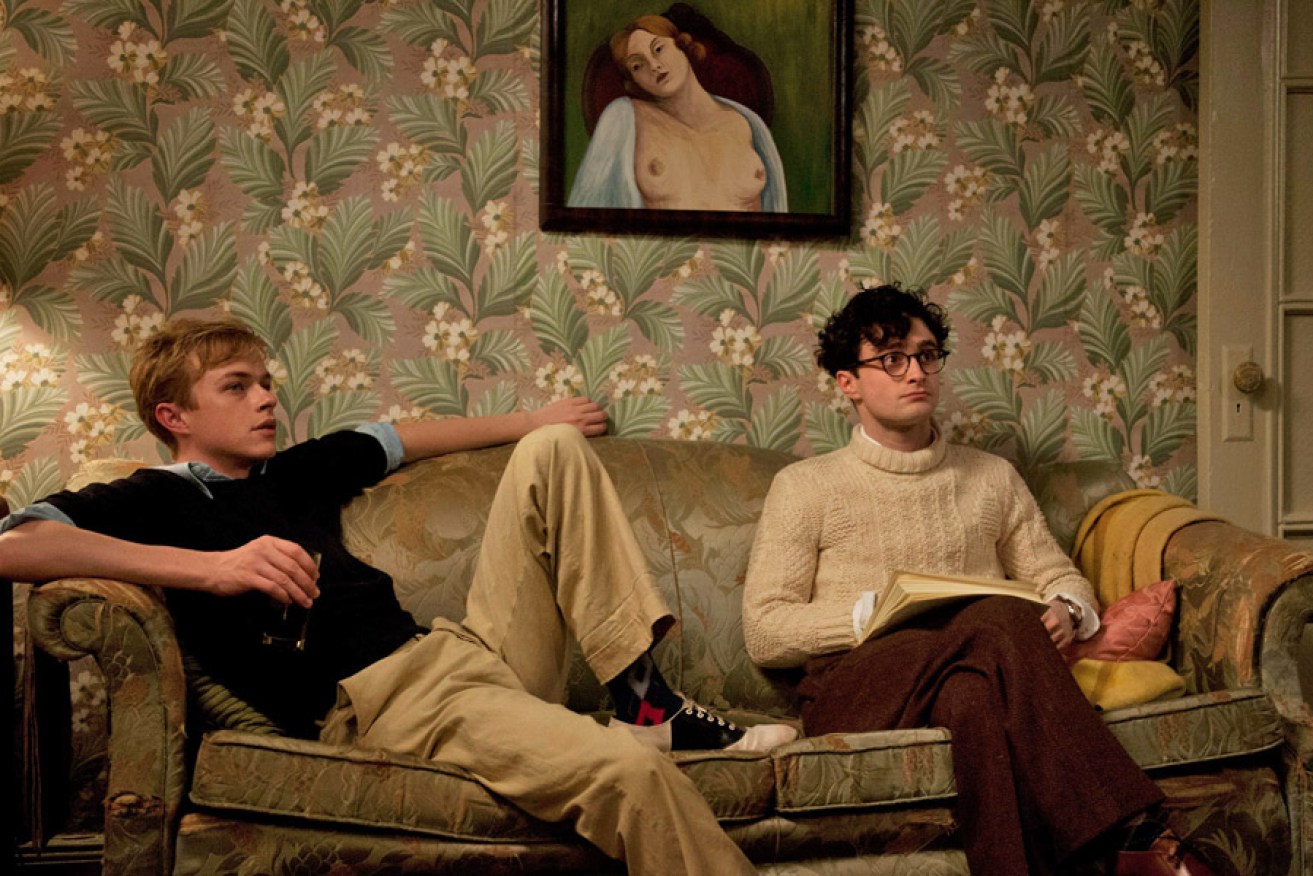Set against the closing days of World War II, Kill Your Darlings is a biopic centred on the life of American poet Allen Ginsberg, and his position at the nexus of some of the greatest writers of the 20th century.
Daniel Radcliffe plays Ginsberg, a bookish wannabe poet from an uptight and fractured home, who we meet as a freshman at Colombia University. It’s there he meets Lucien Carr (Dane DeHaan), a dangerous and charismatic student whose intermittent affections the blossoming Ginsberg finds intoxicating.
Carr has a mysterious attaché in David Kammerer (Michael C Hall), an older gentleman who he coyly and masterfully plays as his whims dictate. Ginsberg and Carr fall in with William Burroughs (Ben Foster) and Jack Kerouac (Jack Huston) as they begin to explore drugs, sex and decadence that are firmly taboo in 1944 New York.
Things get out of hand, as they tend to do in such hedonistic times, and a murder forces these men to question themselves, their loyalties and their relationships.
Although the setting for Kill Your Darlings a beautiful re-creation of the ’40s, director John Krokidas shoots with no apologies to period – the action jumps, rewinds, fast-forwards and blurs to deepen the audience’s connection to the story. The soundtrack, too, is anachronistic, weaving machine-made beats through the chilly, de-saturated picture to wonderful effect.
At its core, the tale is one of morality. As the world emerges from its second brutal war in less than 30 years, the United States also emerges from revolutionary childhood as a superpower essentially in charge of a broken world. In doing so, it must confront its own demons and leave behind a Victorian sense of modesty and the “values” that defined a homogenous and deeply inequitable society. 1944 will see the first seeds of civil rights, the sexual revolution and the transformation of the USSR into a mortal enemy, and we can see the nascent rumbles of these weaved through the film.
Kill Your Darlings channels this world and its inherent tensions marvellously through the leads. A sense of excitement at possibility pervades the film, and Radcliffe portrays Ginsberg’s own series of awakenings to thrilling effect. There is hope, there is recklessness, and there is the robust and destructive kind of growth that defines late adolescence. The chemistry between Radcliffe and DeHaan is particularly electric; DeHaan is brilliant as a perfect, dangerous and addictive personality most people will recognise from some dark corner of their own formative years.
I would particularly urge people interested in queer history and cinema to see this film. Probable historical accuracy aside, the story as presented is a fascinating and moving insight into the moral climate before the Stonewall riots, and the damage wrought by the suppression of desire.
Ginsberg put forward some extremely problematic views on sexuality, especially regarding minors, over the course of his life, but Kill Your Darlings does not seek to lionise the poet, nor overtly link the trauma of his youth to these views. We see a flawed and struggling young man railing against an uncaring society, for better or worse, and it fascinating to watch.
More InDaily film reviews:
Carrie
Filth
The Hunger Games: Catching Fire
Bad Grandpa
The Fifth Estate
Thor: The Dark World
The Counselor
Captain Phillips
About Time
Mystery Road
2 Guns





